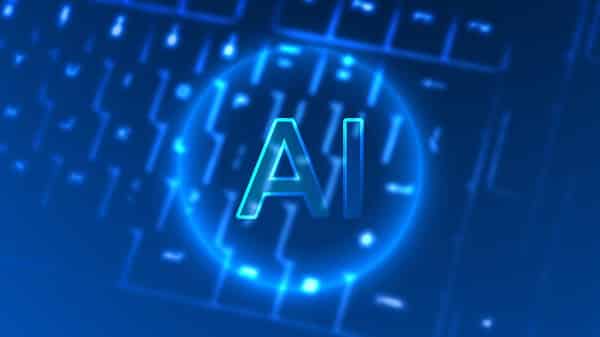Artificial Intelligence (AI) has rapidly evolved from a futuristic concept into a fundamental part of everyday life. This remarkable technology, once confined to the realms of science fiction, now plays a pivotal role in various sectors, reshaping how tasks are performed and decisions are made. From simplifying daily chores to revolutionizing critical industries, AI’s influence is profound and far-reaching. This exploration delves into the diverse impact of artificial intelligence, highlighting its transformative power in everyday activities and its potential to redefine the future.
Contents
Enhancing Daily Convenience

The realm of daily convenience has been significantly transformed by AI. Homes are becoming smarter, with devices like thermostats, lights, and security systems being controlled through voice commands or smartphone apps. This automation not only offers unmatched comfort but also improves energy efficiency and safety. Personal assistants like Siri, Alexa, and Google Assistant have become household names, managing schedules, answering queries, and even controlling other smart devices, thereby streamlining daily routines.
Moreover, AI’s role in enhancing daily life extends beyond the confines of home. It optimizes travel routes, predicts traffic conditions, and even suggests restaurants or activities based on personal preferences. This level of personalization and efficiency, powered by AI, has not only elevated the standard of living but also set new expectations for technology’s role in daily life.
Revolutionizing Healthcare

In healthcare, AI’s impact is both profound and life-saving. Advanced algorithms are now capable of analyzing complex medical data, aiding in early disease detection, and offering personalized treatment plans. This not only enhances the accuracy of diagnoses but also paves the way for more targeted and effective treatments. AI-powered tools are becoming indispensable in areas like radiology and pathology, where they assist in identifying anomalies that might be missed by the human eye.
The advent of robotic surgeries marks another milestone, where AI-driven robots assist surgeons in performing intricate procedures with higher precision and control. This not only minimizes human error but also significantly reduces recovery times for patients. The integration of AI in healthcare is not just about technological advancement; it’s about saving lives, improving patient outcomes, and ushering in a new era of medical excellence.
Transforming Education

AI has brought a paradigm shift in the education sector, tailoring learning experiences to individual needs and capabilities. Adaptive learning platforms use AI to analyze students’ learning patterns, strengths, and weaknesses, thereby customizing the educational content to suit each learner. This personalized approach ensures that students grasp concepts at their own pace, leading to more effective and engaging learning experiences.
In addition to enhancing learning, AI significantly reduces the administrative burden on educators. Tasks such as grading and attendance tracking are automated, allowing teachers to focus more on teaching and less on paperwork. This shift not only improves the efficiency of educational institutions but also enriches the quality of education, making it more accessible and inclusive.
Economic Impacts

The economic landscape is undergoing a significant transformation thanks to AI. Industries across the board are leveraging AI to enhance efficiency and drive growth. In sectors like manufacturing, AI-driven automation leads to higher productivity and reduced operational costs, contributing to a more robust economy. In the realm of finance, AI plays a crucial role in analyzing market trends and making predictions, aiding investors and companies in making informed decisions. This level of data processing and predictive analytics was unimaginable a few decades ago, demonstrating AI’s profound impact on economic strategies and outcomes.
Furthermore, AI’s influence extends to small businesses and startups, offering tools and insights previously accessible only to large corporations. From customer relationship management to market analysis, AI levels the playing field, enabling smaller entities to compete effectively. This democratization of technology spurs innovation and fosters a more dynamic economic environment. However, as AI continues to evolve, it also raises questions about job displacement and the need for workforce retraining, highlighting the importance of balancing technological advancement with socio-economic considerations.
Reshaping Entertainment And Media

In the entertainment and media industries, AI is a game-changer. Streaming services like Netflix and Spotify use AI algorithms to personalize recommendations, enhancing user experience by aligning content with individual preferences. This not only increases viewer satisfaction but also drives engagement and loyalty. In the realm of content creation, AI tools assist in everything from writing scripts to composing music, showcasing its creative potential. The ability of AI to analyze vast amounts of data and predict consumer preferences is transforming how content is created, distributed, and consumed.
AI’s role in media extends to journalism as well, where it assists in gathering and analyzing news, even generating basic reports in some cases. This automation allows journalists to focus on more in-depth, investigative work. However, this integration of AI in media also raises concerns about the authenticity and bias of AI-generated content, emphasizing the need for a balanced approach that combines AI’s efficiency with human oversight and ethical considerations.
Privacy And Security Concerns

As AI becomes more integrated into everyday life, concerns about privacy and security have surged. The vast amounts of data collected and processed by AI systems pose significant privacy risks. Personal information, if not properly secured, can be misused, leading to privacy violations. The challenge lies in harnessing the power of AI while ensuring the protection of individual privacy, necessitating stringent data protection laws and ethical AI practices. Additionally, the opaque nature of some AI algorithms can lead to a lack of transparency, making it difficult for users to understand how their data is being used.
Security is another critical concern, especially as AI systems become more sophisticated. The same technology that powers cybersecurity solutions can also be used for malicious purposes, including sophisticated phishing attacks and automated hacking. As AI systems become more prevalent, the need for advanced AI-driven security measures becomes imperative. This ongoing battle between cybersecurity and cyber threats underscores the need for continuous innovation in AI security protocols to safeguard digital assets and personal information.
The Future Of AI

Looking towards the future, AI is poised to continue its transformative journey, impacting every aspect of human life. Emerging trends suggest further advancements in AI capabilities, potentially leading to more autonomous systems and even more personalized user experiences. The integration of AI with other cutting-edge technologies like quantum computing and the Internet of Things (IoT) promises to unlock new possibilities, from solving complex global challenges to enhancing everyday convenience.
However, as AI continues to advance, ethical considerations become increasingly important. The responsibility lies in developing and deploying AI in a manner that is beneficial and non-discriminatory. The future of AI should be guided by a commitment to ethical standards, ensuring that technological progress does not come at the cost of human values or societal well-being. Balancing innovation with responsibility will be vital to harnessing the full potential of AI while safeguarding against its risks.
Embrace The AI Revolution Responsibly
The impact of AI on everyday life is both profound and far-reaching, offering unparalleled benefits in convenience, healthcare, education, the workplace, and beyond. As you stand at the cusp of this AI revolution, it is crucial to embrace these advancements while being vigilant about the accompanying challenges. The future beckons you to not only leverage AI for progress and efficiency but also to ensure ethical practices and protect privacy and security. Let’s move forward with a balanced approach, harnessing AI’s potential responsibly for a better tomorrow.


